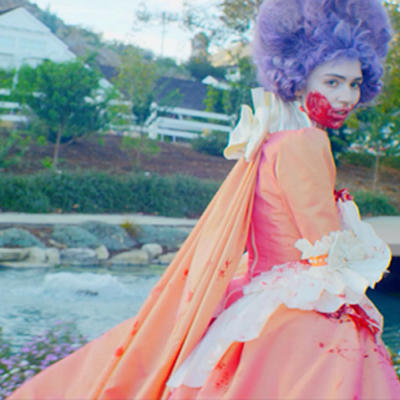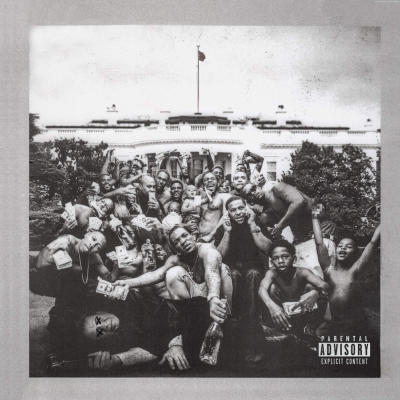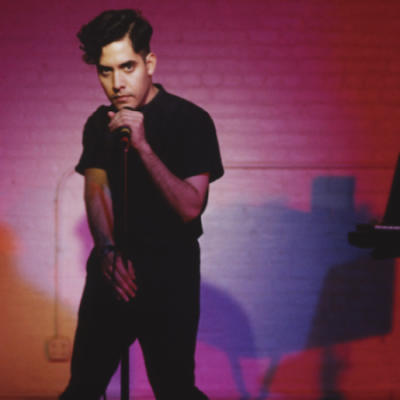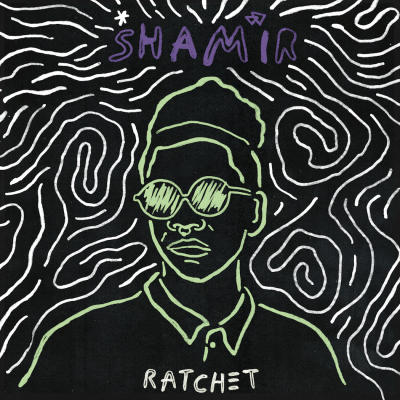For years now, it has seemed as if New York rapper Le1f has been teetering on the edge of blowing up. His addictive track “Wut” was (allegedly) lifted for Macklemore’s megahit “Thrift Shop” and since then he has become an increasingly visible presence on ultra-cool blogs and in-the-know radio playlists. His first official album, Riot Boi suggests, though, that mainstream acceptance is not what Le1f is after.
Riot Boi demonstrates just how permeable the line between underground hip-hop and experimental electronic music has become, with songs produced by artists at the forefront of the dance music avant-garde such as the subversive SOPHIE or the spare and bass-y trap king Lunice. Following a brief intro, the album’s first proper song “Rage” features dolphin sounds, glittering synths, and a slamming chorus that is befitting of the song’s title. The production on “Rage” is courtesy of enigmatic producer Balam Acab, and its bizarre plasticity is very appropriate for Le1f’s singsong delivery that drips with sarcasm.
Riot Boi is a strong statement from Le1f, both thematically and musically. Arguably though, there is a lack of focus to the album that means that it doesn’t always seem like a unified whole. It can also sometimes seem like Le1f’s outsized personality, which is one of his best assets, is being subsumed in his desire to create something more universal and outwardly focused in its themes.
Throughout Riot Boi, Le1f juggles weighty issues of blackness and queerness and explores how they tie into identity. The frank sexuality that characterised his previous work remains, but Le1f’s lyrics are darker, sharper and more incisive. The album’s lightest moment, the SOPHIE-produced “Koi” finds Le1f describing with deadpan irony over a fizzing pop backdrop how it feels to be fetishised for being “exotic.”
Further exploring black identities, “Grace Alek Naomi” is named for three iconic black models and references Wallace Thurman’s novel The Blacker the Berry: A Novel of Negro Life in its chorus. Over a metallic, percussive beat, Le1f moves between flows and rhythms with ease, spitting with urgency and passion. The physicality of the music, even if there are sometimes jarring transitions in the flow of the album, is the perfect match for Le1f’s muscular, expressive voice.
Riot Boi’s concerns culminate in its concluding track “Change,” which in its first lines makes reference to police brutality against black Americans. Providing the song’s chorus, Devonté Hynes’ (a.k.a. Blood Orange) soft and supple voice provides intriguing counterpoint to the abject despair in Le1f’s verses. The almost hymnal track is a remarkably poignant ending to a record that covers considerable ground in only forty minutes.
As always with Le1f, the music on Riot Boi is detailed, forward-thinking and futuristic, largely thanks to his choice of collaborators. He is nothing if not an original and innovative artist, playing with tone, colour, light and space throughout the record, transcending what is expected of hip-hop. Riot Boi may not be the big artistic statement that Le1f’s biggest supporters may have been hoping for, but it’s a fascinating album that is sure to reward close and attentive listening.
Riot Boi is out now on CD, vinyl and digital formats. Le1f is performing at Oxford Art Factory with special guests Oscar Key Sung and Baby Face Thrilla on January 21, 2016.





